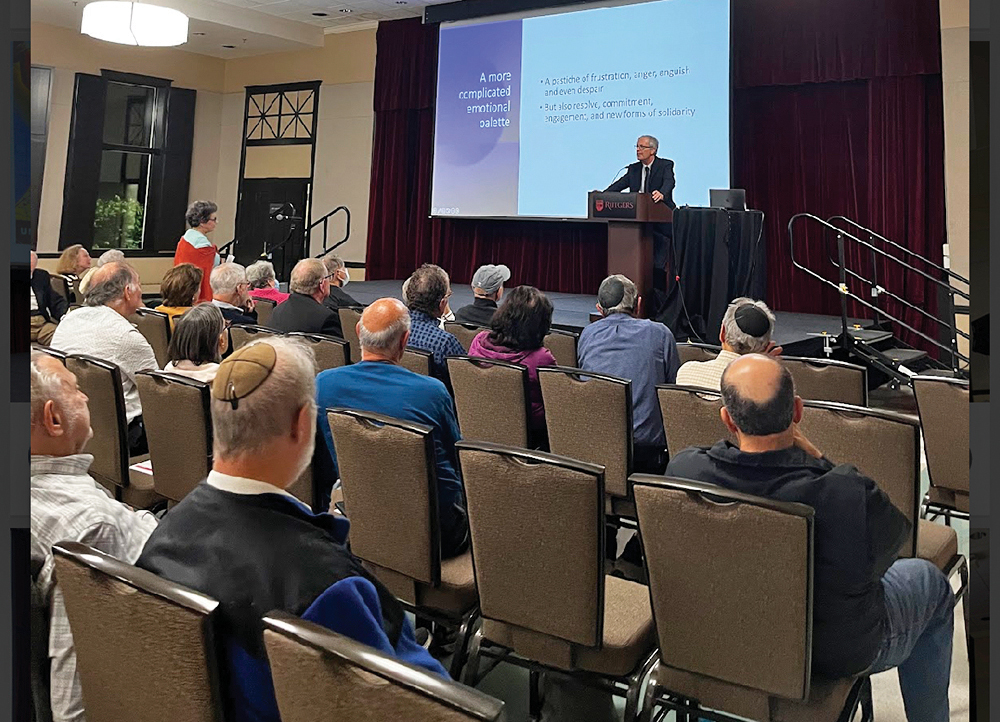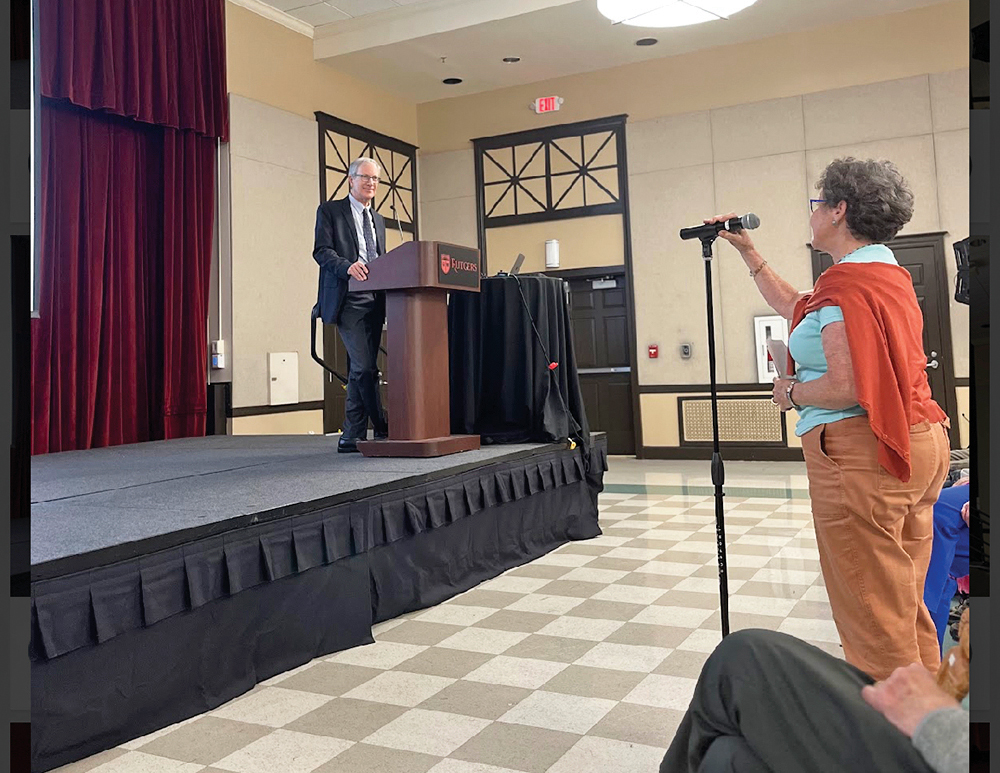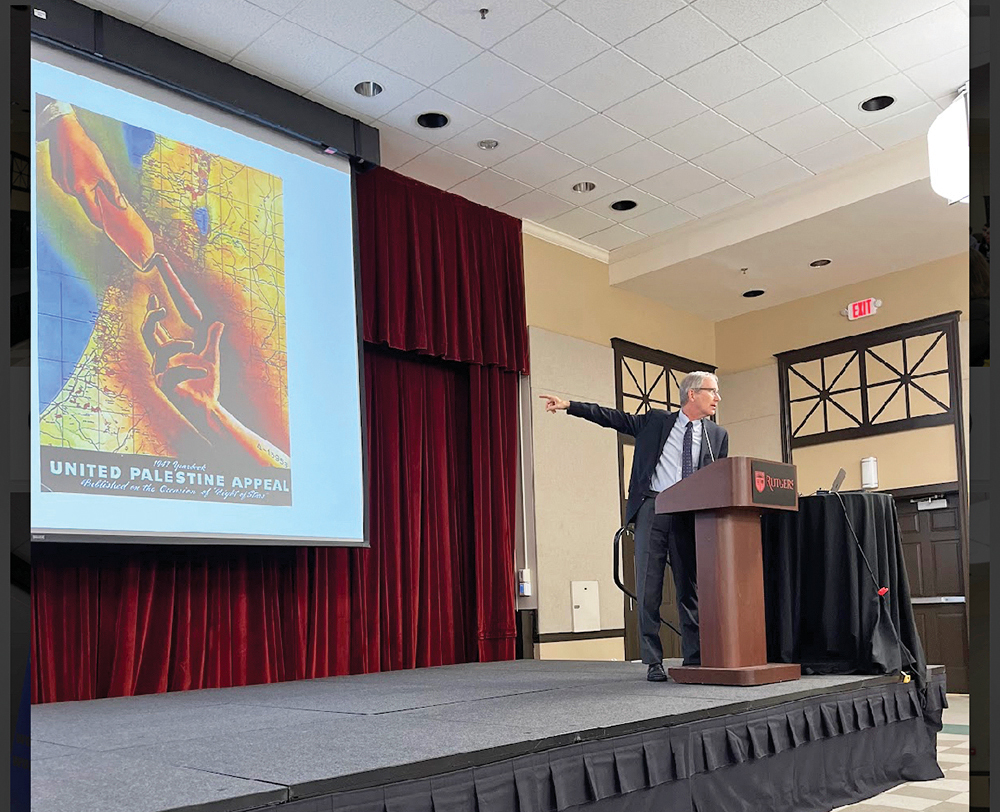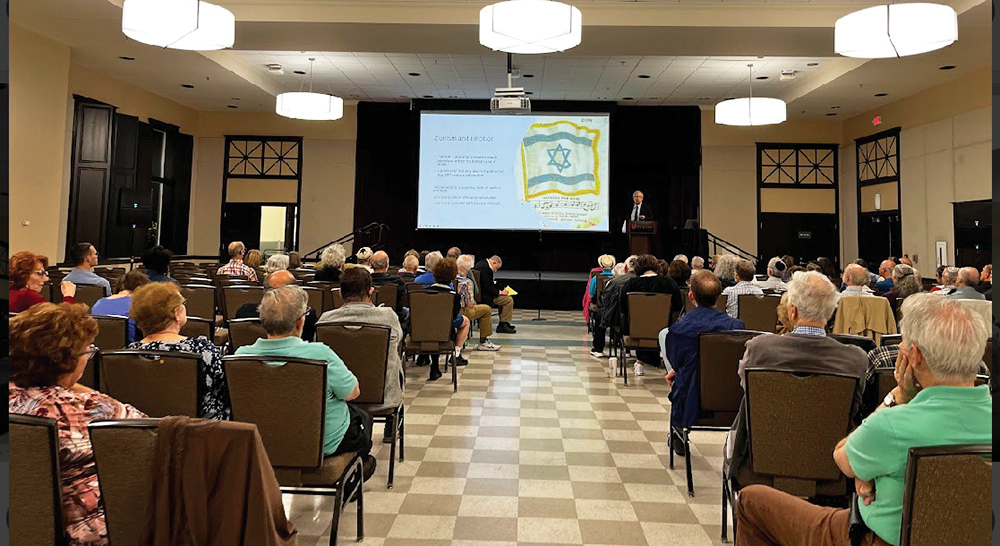
On September 20, the Bildner Center for the Study of Jewish Life at Rutgers University hosted Professor Derek J. Penslar to speak on the content from his book “Zionism: An Emotional State.” This was the Bildner Center’s first public lecture of the academic year, with more scheduled to take place in the coming months.
Penslar, who has taught at the University of Toronto, Harvard, and Oxford, drew an audience of over 80 local community members. The event began with an introduction by Professor Nancy Sinkoff, the academic director of the center.
Penslar provided a unique account of the history of Zionism by explaining the American Jewish relationship with the State of Israel through the lens of emotion. Penslar initiated the lecture by explaining that emotions within political movements are a topic we do not often hear about, a concept he himself had not encountered until having lunch with a colleague studying emotion in international relations. After reading his colleague’s work, he felt it explained the American relationship with Israel more comprehensively than anything he had previously encountered, despite it not focusing on Israel. It was then that he decided to apply this field of study to Zionism.
Penslar refuted the idea that Jewish support for Israel comes from a place of fear, instead suggesting that the main supporting emotions are love, hope, honor and solidarity. He described a gradual transformation in American-Zionist identity from a sense of solidarity to a place of existential attachment after the state’s establishment in 1948. This attachment, he argued, caused criticism of Israel to only be accepted in terms of love and support for it. Penslar claimed that these emotions of love and support guide many Jewish organizations when determining the kind of critiques of Israel they allow.

He presented statistics which indicate a decline in the strong identification of young American Jews with Israel in recent years. Penslar attributed this to “an emotional cooling” regarding the connection to Israel. He stated that we are on the verge of another emotional transition, shifting from “adulation to anguish” due to recent events involving the election in Israel. According to Penslar, “American Jews are distraught by what is going on.” He projected that we would witness more critical engagement with Israel in the coming years, and while there would be more anger, frustration and despair, new forms of engagement would also emerge. Although he believes that the era of unquestioned love for the state of Israel may have passed, the connection American Jews have to it will never disappear.
A question-and-answer session was held after the lecture concluded, which some called “the highlight of the experience.” After the formal session ended, audience members who had not had the chance to ask a question or who wanted to thank Penslar had the opportunity to do so.

Even with a diverse audience and a highly debated topic, Penslar’s talk was extremely well received by a large majority of the attendees. Robert Piavian, Eli Lighter and Rosie Bell called him “a great speaker” and admired his original perspective on history with which they were familiar. Multiple people could be heard referring to it as “an overall great program” on their way out. Rutgers student Nadav Warszawski called the talk “incredibly interesting and honest.”
Penslar’s book is available for purchase online and in bookstores. More information about the Bildner Center for the Study of Jewish Life’s public lecture series and upcoming events can be found at https://bildnercenter.rutgers.edu.
Samantha Gelberg is a junior at Rutgers University-New Brunswick, majoring in Journalism & Media Studies and Jewish Studies.












